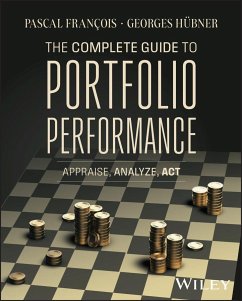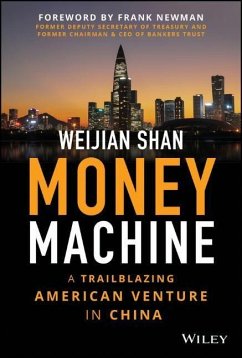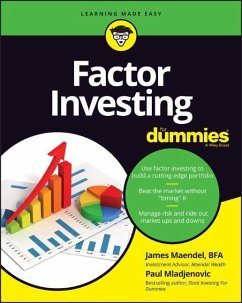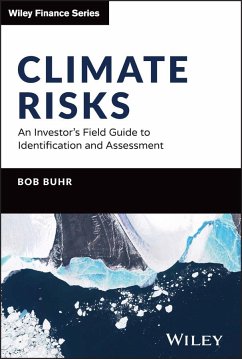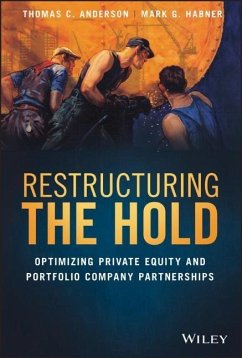
Measuring Esg Effects in Systematic Investing
Versandkostenfrei!
Versandfertig in über 4 Wochen
86,99 €
inkl. MwSt.
Weitere Ausgaben:

PAYBACK Punkte
43 °P sammeln!
Authored by members of the Quantitative Portfolio Strategy Group at Barclays Research--a recognized authority in the field--Measuring ESG Effects in Systematic Investing is entirely based on their original research. The authors take no views on the merits of Environmental, Social and Governance (ESG) based investing, but rather take a purely quantitative approach to measuring its impact on the performance and valuation of bond and equity portfolios by applying consistent methodologies across the two markets. The book is written in an intuitive yet quantitatively rigorous style. Its four par...
Authored by members of the Quantitative Portfolio Strategy Group at Barclays Research--a recognized authority in the field--Measuring ESG Effects in Systematic Investing is entirely based on their original research. The authors take no views on the merits of Environmental, Social and Governance (ESG) based investing, but rather take a purely quantitative approach to measuring its impact on the performance and valuation of bond and equity portfolios by applying consistent methodologies across the two markets. The book is written in an intuitive yet quantitatively rigorous style. Its four parts address distinct aspects of ESG investing. First, the authors address the seemingly simple question of how to measure ESG-related returns, and show that a direct comparison of sustainability indices to standard indices can give misleading results. They introduce a methodology for isolating the performance effect of ESG while matching all other risk dimensions of the underlying market and document the behavior of this premium in equities and bonds over time. The performance of this "best in class" ESG investing is contrasted with the exclusionary negative screening approach. Next, the authors use the context of a systematic credit strategy based on proprietary signals for value, momentum and sentiment to test the effect of ESG constraints on portfolio alpha. They also examine how ESG constraints affect equity style factors: to what extent does the return profile of a constrained factor preserve the behavior of its original version? In addition to evaluating ESG choices faced by investors, the book explores the implications of ESG-related activity by issuers. Do companies that hire for ESG-related positions more aggressively than their peers receive higher ESG ratings in subsequent years? Are corporations with improving ESG scores rewarded by increased valuations of their debt and equity? Does improved corporate governance lead to higher company profitability? Finally, the authors address one of the key issues in the field: the lack of consensus on how ESG rankings should be formed. Given the dispersion in ESG scores across providers, how can investors form a consensus score? Does this disagreement among score providers have implications for future ESG returns? How does ESG labeling influence the mutual fund performance, fund flows and AUM? Perfect for institutional investors, portfolio managers and hedge fund professionals, Measuring ESG Effects in Systematic Investing belongs on the bookshelves of all practitioners and academics involved in ESG strategies.




